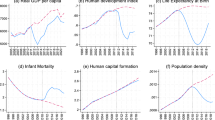Abstract.
This essay addresses the historical and institutional aspects of Schumpeter's thought. It suggests that Schumpeter prepared a pluralist research agenda, formulated in accordance with the conceptual perspective of the German Historical School, as presented by major scholars such as Schmoller, Sombart, Spiethoff and Max Weber. Schumpeter's notion of development, with its emphasis on the correspondence of economic and socio-cultural evolution, is therefore to be viewed in the context of the comprehensive Schmollerian approach. Moreover the ethical-evolutionary components of Schmoller's ideas point at the vital role of the German Historical School in the elaboration of a modern evolutionary economics in Schumpeterian terms. The essay concludes that the Schmollerprogramm is going to inspire further developments in Schumpeterian economics, as the integration of theory and history continuously marks the research agenda of evolutionary approaches to economic development.
Similar content being viewed by others
Author information
Authors and Affiliations
Rights and permissions
About this article
Cite this article
Ebner, A. Schumpeter and the `Schmollerprogramm': integrating theory and history in the analysis of economic development. J Evol Econ 10, 355–372 (2000). https://doi.org/10.1007/s001910050020
Issue Date:
DOI: https://doi.org/10.1007/s001910050020




